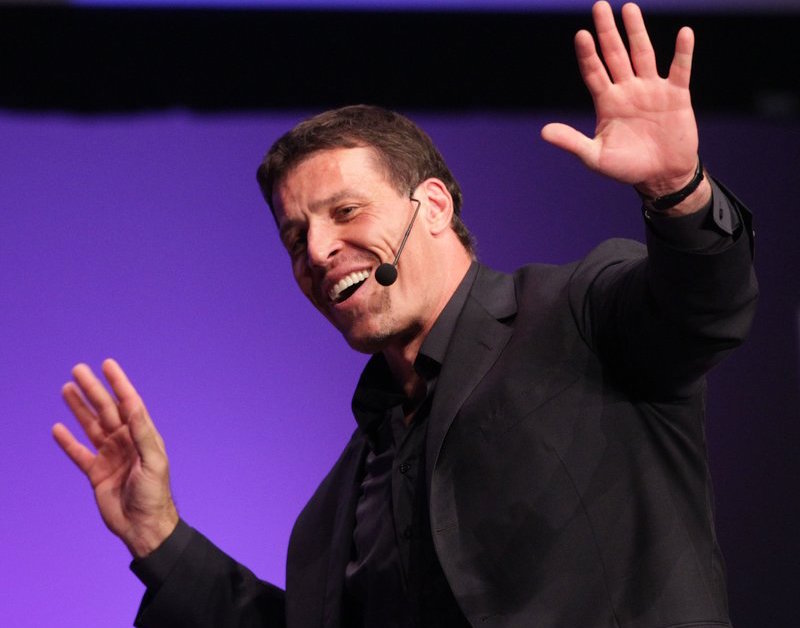
“Your time is limited, so don’t waste it living someone else’s life. Don’t let the noise of others’ opinions drown out your own inner voice.” – Steve Jobs
When we’re young, we look to more experienced mentors for advice. Later on, we become the advisors. At least, that’s how it should be. Today, the market for advice is flooded. Everyone has an opinion on everything, regardless of whether they have the knowledge and experience to back it up.
Against the overwhelming cacophony of the digital masses, judging who to listen to and having the discipline to shut out the rest of the noise are critical skills for success. They’re becoming more important all the time. But it wasn’t always that way.
When I was an up-and-comer back in the Dark Ages, it was relatively easy to tell whose advice was worth listening to and whose advice you could ignore. That’s because you knew these people. You worked with them. Whether they were your family, friends, teachers or bosses, you had time to assess and deem each individual worthy or not.
There were also relatively few public figures. Back then, it took a lot more work to publish a book and getting on TV was a pipe dream. Leaders had to make their messages crystal clear if they wanted them to count. You knew what they stood for. And you could make an unambiguous determination of the value of their wisdom.
When John F. Kennedy told us to “ask not what your country can do for you, ask what you can do for your country,” everyone got the message.
To say it’s a different world today is the mother of all understatements. The blogosphere, social media, self-publishing, broadband networks and mobile devices have forever opened the information floodgates. Anyone who wants to be heard, can be heard — and make a few bucks on the clicks and ads in the process.
We passed the point of media madness and communication overload long ago.
Amidst the millions of terabytes of content and the countless hordes of professional coaches, opinion leaders, growth hackers, personal performance gurus and leadership seminars and webinars, you don’t have to be Tony Robbins or Tim Ferriss to know that the advice business has become big business.
Unfortunately, the overwhelming majority of it is complete and utter nonsense. I don’t envy today’s up-and-comers. It’s nearly impossible to determine who actually knows what the hell they’re talking about and who is just out to make a buck and a name for themselves in classic “fake it ‘til you make it” style.
I have a better idea. Here’s some advice on how to find real knowledge and wisdom, instead of a load of useless fluff. If you’re wondering which of those two categories my advice falls into, good; you’re catching on.
Experience is the best teacher
From the day you’re born to the day you call it quits, the most prolific and unfailing teacher is your own personal experience. It’s all about trial and error. Mentors are fine, but lessons are best learned on your own. Hard fought victories will give you self-confidence and heartbreaking defeats will make you strong and wise. Life lessons are lessons for life.
Trust your gut
The more time we spend cycling information through our frontal lobes, the less in touch with our true feelings we become. Your greatest source of inspiration is your inner self, but it’s difficult to tap into these instincts while staring at a computer screen, talking or texting. You have to be still. Quiet. Passive.
Question everything
Questioning generally accepted principles, common wisdom, postulates and theories is called the Socratic method. It’s the essence of critical thinking and the scientific method. Abandoning it led to the Dark Ages; embracing it brought us modern western civilization. Be skeptical, especially of self-promoters with vague, self-proclaimed titles.
Don’t follow leaders
Bob Dylan is among the most poetic and prophetic deliverers of one-liner wisdom. “Don’t follow leaders,” from 1965’s Subterranean Homesick Blues, is among the most insightful anti-advice I’ve ever heard. It actually inspired the title of my first book, Real Leaders Don’t Follow. They don’t. They lead. So should you.
Follow the money
I would be circumspect of anyone whose bio begins and ends with how many speeches they’ve given, books they’ve written or people they’ve influenced. If their success is based entirely on how much money they make off the backs of hard-working people like you and me, they’re just salesmen.
What do you think of my advice? Does it make sense or do you remain skeptical? Either way, my job here is done.
A version of this originally appeared on fortune.com.
Image credit Frederick M. Brown Getty Images